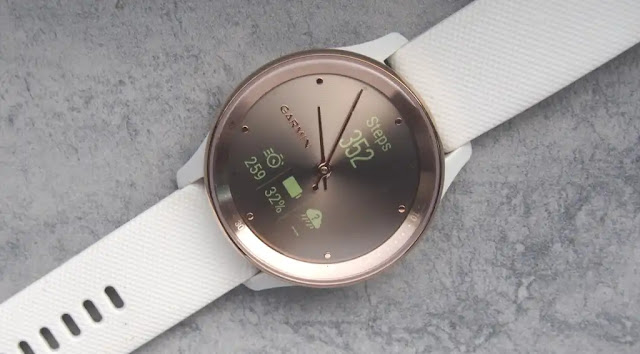LIKES
- Punchy turbo-4
- Large cargo area
- Good standard feature set
- Great transmission
- Roomy cabin
DISLIKES
- Aging beauty
- Tight second row
- Controller dial for infotainment
- Some inferior interior trim pieces
BUYING TIP
- Add $2,000 for all-wheel drive and the base model delivers the best value. The $4,650 M Sport package doesn’t justify the cost.
The 2020 BMW X1 welcomes crossover shoppers into the luxury brand with a good price and nice features.
The 2020 BMW X1 blends crossover style with hatchback practicality. It’s a winning formula on both sides of the equation: The X1 is the most affordable BMW and, for BMW, it is its best-selling crossover in the world.
The extra height adds more space inside and greater outward vision than a hatchback, without compromising too much in the way of performance. Mildly refreshed this year with cosmetic tweaks inside and out, the 2020 X1 still starts at about $36,000, which is one of our favorite things about it. It’s classic BMW with a potent powertrain, nimble handling, and scads of technology—and enough piecemeal options to make your head spin with BMW roundels. It’s starting to show its age inside and out, however, which earns it a 6.0 overall score.
The X1 was last comprehensively overhauled in 2016 and it has since been bypassed by a slew of competing luxury small crossovers—no amount of inflating the grille can change that. The cladding looks more Subaru than Bavarian, and some interior materials expose the entry-level nature that does not reflect well on BMW.
A 228-horsepower turbo-4 powers the X1’s front wheels as standard, all-wheel drive costs $2,000 more. Paired with an excellent 8-speed automatic, the turbo-4 punches off the line and zips through all passing moves.
Cargo room is exceptional with more than 27 cubic feet, but the rear seats can be cramped, which is typical for the class. The X1’s standard features include 18-inch wheels, synthetic leather upholstery, 8.8-inch infotainment touchscreen with Apple CarPlay compatibility, automatic emergency braking with pedestrian detection, lane-departure warnings, and automatic high beams.
Then there are the options, from M Sport kit to any color other than black or white, and the X1 can climb to just under $50,000 fully loaded.
Styling
Once a trendsetter, the 2020 BMW X1 has since been outpaced.
The BMW X1 once set the curve for small luxury crossovers when it launched for 2013 and the emulators have now surpassed it for looks. It no longer draws attention in the manner of the Volvo XC40, Jaguar XE, or even the mechanically-related Mini Countryman. Such is life (cycles).
Last significantly updated for 2016, it’s due for a complete makeover. It earns a patient but average 5.
Just because it’s not fresh doesn’t mean it’s unattractive. For 2020, BMW freshened its face with a broader kidney grille that reflects the massive kidneys stamping newer BMW models. There’s no longer a space under the roundel, so the grille looks as much like a constable’s mustache as twin kidneys. New available LED fog lights stretch the lower front fascia and in back, wider tailpipes also expand the X1’s sense of being. The cladding can be a bit much, but a black body can hide it and a white body contrasts it, if you’re into that fake off-roading look. Any other color costs extra.
Performance
The turbo-4 stays true to BMW’s heritage of making plucky powertrains, even if it’s packaged in a bigger body.
Powered by a 228-hp 2.0-liter turbo-4 with an 8-speed automatic transmission, the 2020 X1 blends grace and power not often found in entry-level luxury models.
It’s our favorite part of the X1, aside from the cargo room. It gets a 6 for the pleasing powertrain.
Generating 258 pound-feet of torque, the base front-wheel-drive X1 hits 60 mph in 6.6 seconds, according to BMW. Not too shabby. Add all-wheel drive for $2,000 and better traction in inclement weather, and that 60 mph time drops to 6.3 seconds. In nice weather, natch.
The AWD system is front-biased but can send all torque to the rear wheels in a pinch. The 8-speed automatic seems like it’s in every BMW because it should be: It’s seamless under heavy throttle, smooth in comfort mode, and perfectly predictable in sport mode. Add the $4,650 M Sport and you get paddle shifters to toggle the transmission’s gears. For nearly 15% more than the base price, we’re not sure it’s worth it. For that price, and if you’re keen on performance, we’d recommend a 3-Series.
The X1 handles on the stiffer side, especially with the optional 19-inch wheels. Stick with the 18-inchers, but consider requesting BMW to put regular tires on instead of the run-flat tires if you plan to drive aggressively. It’ll cost you $150 for the swap, but only because BMW makes you get a spare donut. They care about your safety. Perhaps.
Comfort & Quality
Spacious in the rear, the 2020 BMW X1 gets tight up front in both size and quality.
The entry-level status of the 2020 BMW X1 can be plumbed in the lower depths of the cabin and the dash, where some flimsy plastic parts hide away. The flat front seats don’t take away from this impression of cost-cutting, but the large cargo space in back and driver-oriented controls make up for it.
It earns a 5 for comfort.
Upgrading from black or white synthetic leather to more textured real leather and real wood grain trim will run $1,550 but will better represent your status as a BMW owner each time you get in the car. We also like the brushed aluminum. Either way, we want to smooth our palms over it and make sure the kids never touch it. But it must be bundled with the $2,500 convenience package, which is not cool, Bavarian bros, not cool.
Rear-seat passengers won’t complain with 37 inches of leg room, unless you try to wedge a third one in the middle. Behind that is a sort of hidden charm of the X1 with 27.1 cubic feet of cargo room, which beats every competitor we looked at. It’s nearly 3 cubic feet more than the next closest E-Pace, and nearly 10 cubic feet more than the GLA-Class. If storage in the small luxury crossover matters most, read no further: X1 is the winner.
The rear seats fold in 40/20/40, so the middle passage can haul longer items for even more versatility. Cargo space expands to 58.7 cubic feet with the whole row flat.
Safety
With good crash-test ratings and standard safety features, the 2020 BMW X1 excels in safety.
The NHTSA gave the BMW X1 a five-star safety rating, the IIHS rated it “Good” in all six crash tests, and the 2020 BMW X1 comes with standard automatic emergency braking. Only a few elements, such as inferior headlights and less-than-perfect rollover crash test scores prevented the X1 from faring even better on the combined ratings.
That’s why we give it a 7 of 10 for safety.
The automatic emergency braking system that comes standard on the 2020 BMW X1 reduced the speed of impact but did not prevent impact in crash-testing done by the IIHS. Other systems, including the one in BMW’s redesigned 3-Series, do better.
Other standard safety equipment includes pedestrian detection, lane departure warning, and automatic high beams.
Outward vision from the driver’s seat is relatively good for a small crossover SUV, but the rear sightlines are limited. Blind-sport monitors are not on the features list.
Features
The most affordable BMW on the market comes fairly well-equipped but still lacks some advanced technology.
The 2020 BMW X1 barely undercuts the 2-series as the most affordable BMW. Starting at $36,195 with destination, it’s not cheap but it does come with solid standard features and a host of options that can stretch the cost to nearly $50,000.
Every X1 starts with synthetic leather upholstery, 18-inch wheels, eight-way power adjustable seats, rain-sensing automatic wipers, and an 8.8-inch infotainment screen new for 2020 with Apple CarPlay compatibility and Bluetooth connectivity. That earns two points and we kick in another point for a 4-year/50,000 mile warranty, which gets us to a 8 out of 10 for features.
All-wheel drive adds $2,000, and any color other than black or white adds at least $550 more. The $4,650 M Sport package with adaptive dampers, leather upholstery, moonroof, sport seats, and some aerodynamic and cosmetic upgrades would lead us to other vehicles, such as the redesigned 2020 3-Series or the X3.
Adding Dakota leather and oak grain wood trim gives the cabin a luxury boost for $1,550, but that must be paired with the $2,500 convenience package. That adds some things we like, once we get over being price bundled, such as keyless ignition, lumbar support, power folding mirrors, a panoramic moonroof, among other less interesting features.
That gets us to about $43,000 with all-wheel drive, which would mean we’d probably add the $500 heated seats.
Skipping the upgrades keeps us below $40,000, and that still includes three years of scheduled maintenance and a warranty better than most rivals, except Jaguar. This is the way to go for the X1.
Fuel Economy
The turbo-4 in the 2020 BMW X1 is both frugal and fun.
The 2020 BMW X1 rates at 24 mpg city, 33 highway, 27 combined, according to the EPA. All-wheel drive knocks it down 1 mpg to 23/31/26 mpg. That’s a 5 on our fuel-economy scale.
Among small luxury crossovers, the X1 keeps pace. The Mercedes-Benz GLA Class does 1 mpg better on average, the Volvo XC40 matches the X1, the Jaguar E-Pace falls off the pace at 24 mpg combined, and the Audi Q3 rounds up the rear at 22 mpg. That’s with all-wheel drive, but even then the competitors are at least 1 mpg better in AWD.
If efficiency is a priority in your small crossover, the Lexus UX Hybrid could be your huckleberry. It gets 42 mpg combined or 39 mpg with all-wheel drive.
Or be patient for the imminent onslaught of plug-in hybrids. No patience either? For now, the mechanically-related Mini Cooper Countryman SE All4 gets 18 miles of electric-only range and the equivalent of 73 mpg combined. Without the electric power, it is EPA-rated at 29 mpg combined.
The X1 requests premium fuel.





















0 comments:
Post a Comment